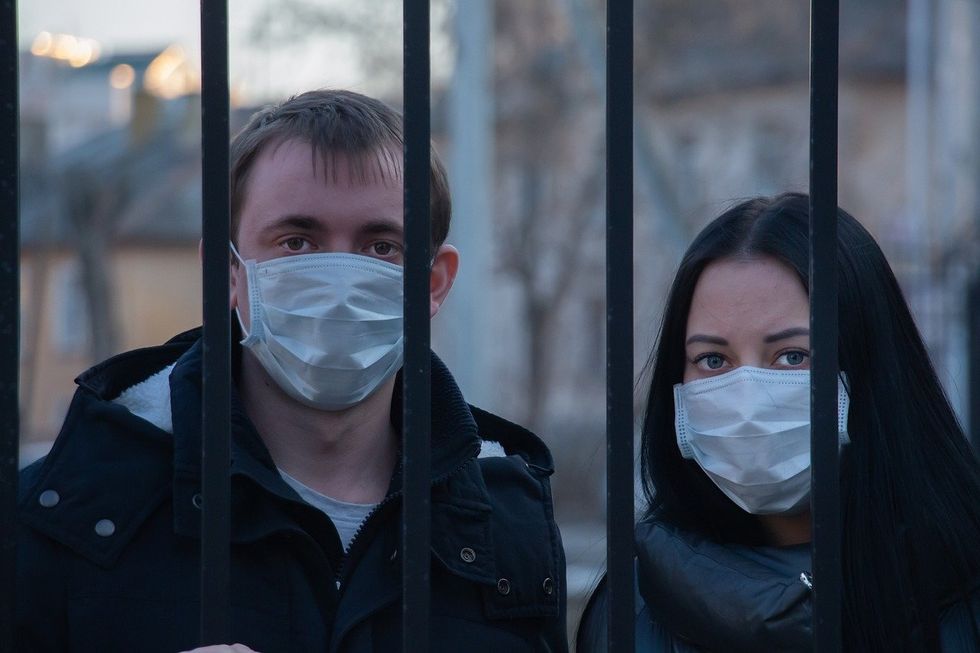Thanksgiving foods and vibrant fall colors in the northeast await college students eagerly looking forward to Thanksgiving Break, a landmark time point signaling that the end of the semester is near. However, as Thanksgiving Break nears and students plan to go home, universities are ramping up the stringency of their COVID-19 prevention/minimization measures. SUNY Testing Policy for Departing Campus calls for mandatory testing of all students taking at least one in-person class, utilizing an on-campus resource or facility (such as the library or gym), or working on campus within 10 days of campus closing.
Effective Friday, November 13th, at 10 pm, Governor Andrew Cuomo of New York announced that bars, restaurants, gyms, and fitness centers will be required to close from 10 pm to 5 am daily. Furthermore, indoor and outdoor gatherings of 10 or more people at private residences will not be permitted.
While these university and state measures are certainly in the best interest of students' safety, the plan for the spring semester is definitely an area of greater concern. Regular testing and masks at all times are to be expected, but the current plan also entails the cancellation of spring break. Specifically, SUNY Policy for Winter and Spring Terms 2021 states, "Given the current risks associated with COVID-19 spread, spring break, and any other spring holiday periods will not be permitted." Spring break has historically been one of the most eagerly anticipated breaks of the academic year, and this year's unprecedented cancellation has many students agitated.
Although the policy has good intentions in minimizing the spread of COVID-19, universities also need to remember that students' mental health care on the line now more than ever, and having a break is thus all the more important. Students everywhere are now experiencing stress not only from school, but stress due to COVID-19, possible traumatic loss of loved ones, the transition to online learning, dealing with social isolation, balancing work responsibilities due to financial issues; and if they are home, possible stressful home environments and balancing family responsibilities. As a student that has personally struggled with online learning and is dealing with overwhelming feelings of isolation, I can attest to the sentiment that the stress is abundant... and suffocating.
Working for almost 13 weeks straight with no breaks is unacceptable given everything else students are dealing with, inevitably leading to astronomically high rates of burnout. If a week-long spring break is not possible, I would strongly urge university administrations to consider giving shorter breaks interspersed throughout the semester. During these breaks, administrations should discourage students on campus from traveling home if not absolutely necessary, which would minimize the need for extensive COVID-19 testing before and after the breaks. Shorter breaks would, in themselves, also discourage students from traveling home, as students tend to prefer going home for longer breaks and may not want to spend the transportation money to go home for a short one. While this may mean seeing their families less often, students would ultimately still be given time off from classes and have the chance to unwind (at least a little bit) given the circumstances.
While the SUNY Policy for Winter and Spring Terms 2021 does mention "single-day midweek 'reading days' throughout the semester as an alternative pause of instruction while discouraging/prohibiting travel away from campus," one day off at a time is not much better than a weekend. Given the workload that many professors are still giving, many students work through reading days and weekends to catch up on and get ahead on work. Essentially, there would still be no "break"per se. To effectively give a break, breaks of 2-3 days should be given every few weeks. Although this may result in more days off in total than would otherwise be given in a regular spring semester, breaks are paramount and needed in more generous amounts than are typical.
Though health safety and wellness are the priority, as a student I sincerely ask that mental health is not neglected. Periodic breaks could be one significant step towards lowering stress, burnout, managing life's responsibilities, and making this global pandemic a little more bearable.























